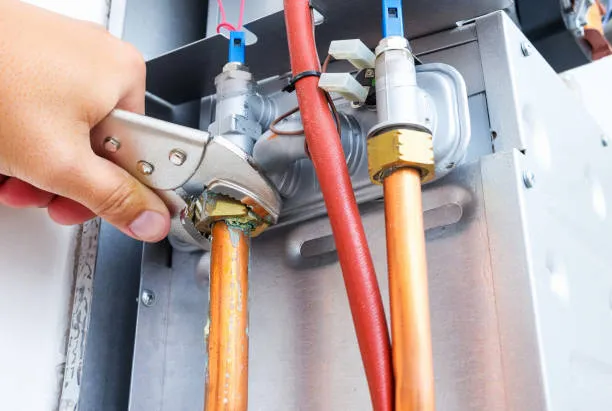Heating Tune-Up in Davis, CA
A professional heating tune-up is the single best way to keep your home warm, safe, and energy efficient through Davis winters and cool snaps. Whether you rely on a gas furnace, electric furnace, or heat pump, a comprehensive tune-up uncovers hidden problems, restores performance, and reduces the chance of emergency breakdowns on the coldest mornings. For homeowners in Davis, CA, where winters are generally mild but can bring chilly nights and occasional cold fronts, a fall tune-up ensures your system is ready when temperatures drop.
Common heating issues in Davis homes
- Uneven heating or cold spots in rooms, often caused by duct leaks or airflow restrictions
- Short cycling (system turns on and off rapidly), which wastes energy and stresses components
- Weak airflow from vents, frequently due to dirty filters or blower problems
- Pilot or ignition failures in gas furnaces, more noticeable after long idle periods
- Increased utility bills after seasonal temperature changes, indicating reduced efficiency
- Strange odors or noises when the system first runs for the season, often a sign of debris buildup or worn parts
Technician checklist - what a full heating tune-up includes
A complete tune-up follows a systematic checklist to inspect, clean, calibrate, and test your system. Core items include:
- Visual inspection of system components and ductwork to identify corrosion, leaks, or damage
- Filter check and replacement recommendation to restore proper airflow and indoor air quality
- Thermostat calibration and control verification to ensure accurate temperature control and proper communication with the system
- Burner and ignition system inspection and cleaning on gas furnaces to promote reliable starts and complete combustion
- Combustion and venting check, including flue/vent inspections, to confirm safe exhaust and prevent carbon monoxide risks
- Electrical connections and control testing, tightening terminals and verifying relays and safety switches operate correctly
- Blower motor and fan cleaning and lubrication where applicable to restore airflow and reduce strain
- Heat exchanger and cabinet inspection for cracks, rust, or signs of stress that may indicate replacement is needed soon
- Safety control tests, including limit switches and pressure switches, to make sure the system shuts down safely if a problem occurs
- System performance measurement, often including temperature rise checks and basic efficiency observations to provide a baseline for future comparisons
What to expect during a visit
Technicians aim to deliver a clear, efficient, and minimally disruptive service. Typical visit flow:
- Arrival and safety protocols - The technician will introduce themselves, follow COVID-19 safety precautions, and confirm any homeowner access needs.
- System interview and walkthrough - Brief discussion of recent issues, unusual noises, or comfort problems you’ve noticed.
- Exterior and venting check - Assessment of outdoor units, vents, and clearances to ensure proper airflow and exhaust.
- Internal inspection and cleaning - Accessing the furnace or heat pump cabinet to clean burners, burners’ ports, coils, and blower components as needed.
- Calibration and safety testing - Calibrating thermostat, testing ignition/burners, checking safety controls, and verifying stable operation.
- Documentation and recommendations - The technician provides a summary of findings, any recommended repairs or parts, and tips to maintain performance between visits.
Most tune-ups take between 45 minutes and 90 minutes depending on system type and home access. Technicians typically leave a brief checklist or report so you have a record of what was inspected and any follow-up items.
How often tune-ups are recommended
- Gas and electric furnaces: annually, ideally in the fall before the heating season begins
- Heat pumps: twice yearly is recommended for homes using the same system for both heating and cooling—once in spring for cooling and once in fall for heating, or at least an annual visit timed to your heaviest-use season
- Ductless mini-splits: annual inspection and cleaning to maintain inverter efficiency and indoor unit performance
Regular annual maintenance prevents the gradual performance decline that causes higher bills and unexpected failures. Homes with older equipment, high use, or pets and smokers may benefit from more frequent filter changes and biannual checkups.
Benefits you can expect from a professional tune-up
- Improved efficiency and lower operating costs through cleaned components and correct calibration
- Greater reliability and fewer emergency repairs by catching worn parts early
- Longer equipment lifespan because systems run less strained and more consistently
- Enhanced safety with combustion and venting checks that reduce carbon monoxide risk
- Better comfort through more consistent heat distribution and stable thermostat performance
- Improved indoor air quality by addressing filters, coils, and blower cleanliness
Membership and bundled service options
Membership plans and bundled services can make regular maintenance more affordable and convenient. Typical membership benefits include scheduled annual tune-ups, priority scheduling, discounted repair rates, and coverage or discounts on multi-system inspections (for example, combining heating tune-up with an AC tune-up or water heater inspection). Bundled visits are especially useful in Davis where many homes switch between heating and cooling seasons; combining services reduces repeat visits and ensures both systems are optimized for seasonal transitions.
Simple homeowner maintenance tips between tune-ups
- Replace or clean filters every 1 to 3 months depending on filter type, pets, and household dust levels
- Keep vents and returns unblocked by furniture or rugs to preserve airflow
- Install and test carbon monoxide detectors if you have gas appliances; check batteries regularly
- Program thermostats to reduce unnecessary runtime and avoid frequent setpoint swings that cause short cycling
- Keep outdoor units clear of debris, leaves, and vegetation that can restrict airflow
A professional heating tune-up in Davis, CA provides peace of mind and measurable improvements in comfort, safety, and efficiency. With the right checklist and seasonal scheduling, your heating system will be ready for Davis’s cooler nights and occasional cold snaps, helping avoid inconvenient breakdowns and costly emergency repairs.
Other Services
Customer Testimonials
See what our satisfied customers have to say about their experience with Always Affordable
Plumbing & HVAC.






